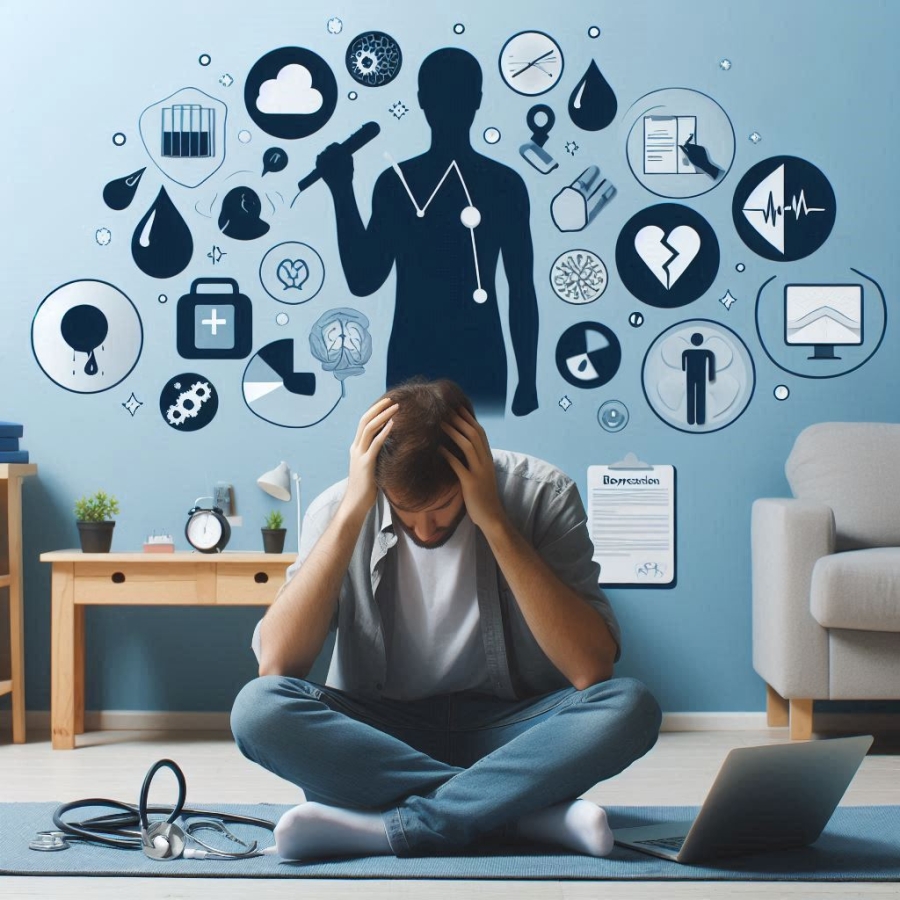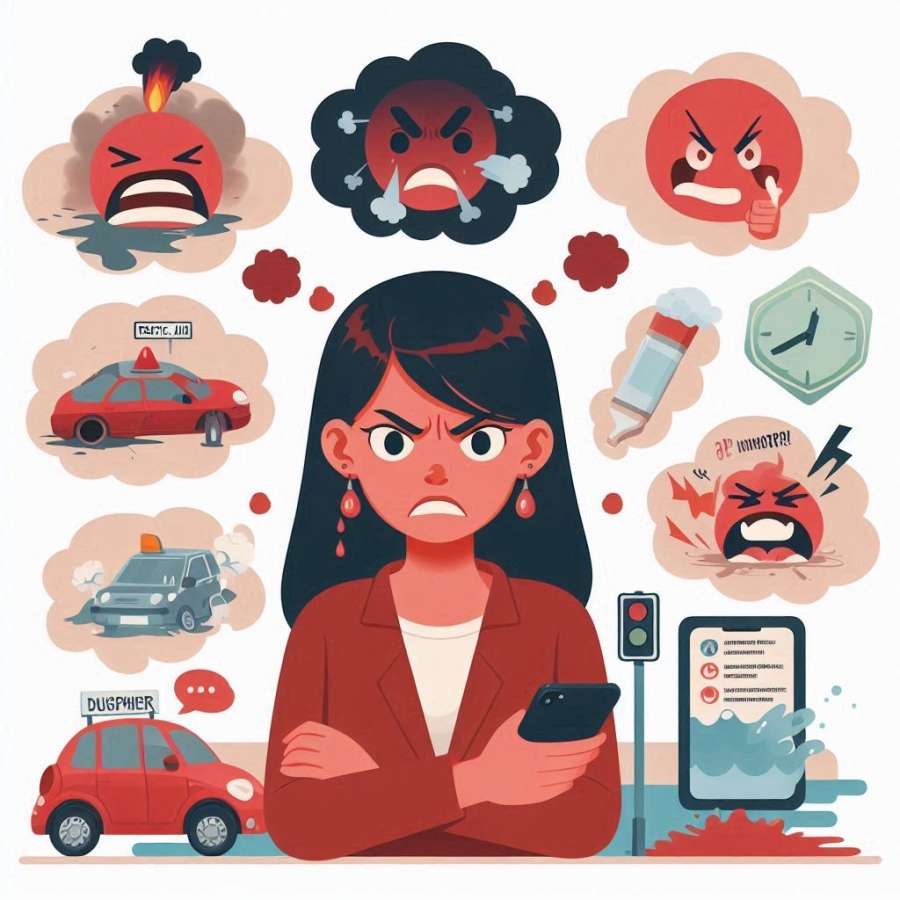Understanding Depression: Signs and Symptoms
Depression is a common mental health disorder that affects millions of people worldwide. It is more than just feeling sad or experiencing a rough patch; it is a serious condition that can impact every aspect of a person’s life. Understanding depression involves recognizing its signs and symptoms, acknowledging its causes, and knowing how to seek help. This article aims to provide a comprehensive overview of depression, focusing on its signs and symptoms, to help individuals identify and understand this condition better.
What is Depression?
Depression, also known as major depressive disorder or clinical depression, is a mood disorder characterized by persistent feelings of sadness, hopelessness, and a lack of interest or pleasure in daily activities. It is a complex condition that affects the way a person feels, thinks, and handles daily tasks. Depression can lead to various emotional and physical problems, reducing an individual's ability to function effectively.
The exact cause of depression is not fully understood, but it is believed to result from a combination of genetic, biological, environmental, and psychological factors. Depression can affect anyone, regardless of age, gender, or background, though certain factors such as a family history of depression, traumatic events, and chronic stress can increase the risk.
It is essential to distinguish between temporary feelings of sadness and clinical depression. While it is normal to feel down occasionally, depression is characterized by persistent symptoms that last for at least two weeks and interfere with daily life. Understanding this distinction is crucial for seeking appropriate treatment and support.
Emotional Signs and Symptoms
Emotional signs and symptoms are often the most noticeable indicators of depression. These symptoms reflect changes in mood and feelings and can significantly impact a person's emotional well-being. Common emotional symptoms of depression include prolonged sadness, feelings of hopelessness, and a lack of interest or pleasure in activities once enjoyed.
Individuals with depression may experience overwhelming feelings of worthlessness or excessive guilt. They may have a persistent negative outlook on life and struggle with feelings of helplessness. This emotional turmoil can lead to irritability, frustration, and even anger over seemingly minor issues.
Another critical emotional symptom of depression is the presence of suicidal thoughts or behaviors. People with severe depression may contemplate or attempt suicide as they feel trapped and unable to see a way out of their suffering. Recognizing these emotional signs is vital for early intervention and support.
Physical Signs and Symptoms
Depression can also manifest through various physical symptoms, which may sometimes be mistaken for other health issues. These physical signs often accompany the emotional symptoms and can exacerbate the overall impact of depression on an individual's life.
One common physical symptom is a change in appetite, leading to significant weight loss or gain. Some individuals may experience a decrease in appetite and interest in food, while others may turn to food for comfort, resulting in overeating. Additionally, depression can cause sleep disturbances, such as insomnia or excessive sleeping, which can further affect overall health and well-being.
Other physical symptoms include fatigue and decreased energy levels, making it challenging to carry out daily activities. Individuals with depression may also experience physical aches and pains, such as headaches, muscle pain, and digestive issues, without any apparent medical cause. These physical manifestations highlight the interconnectedness of mental and physical health.
Cognitive Signs and Symptoms
Depression can significantly impact cognitive functions, affecting how an individual thinks, concentrates, and makes decisions. Cognitive symptoms are crucial to recognize as they can interfere with daily functioning and the ability to perform at work or school.
One common cognitive symptom is difficulty concentrating or making decisions. Individuals with depression may find it hard to focus on tasks, follow through with plans, or make choices. This cognitive impairment can lead to decreased productivity and a sense of frustration.
Depression can also cause negative thought patterns, such as rumination and pervasive self-criticism. People with depression may have persistent thoughts of failure, inadequacy, or guilt, which can intensify the severity of their condition. These negative thought patterns can create a vicious cycle, perpetuating feelings of hopelessness and worthlessness.
Behavioral Signs and Symptoms
Behavioral changes are another key aspect of depression. These symptoms reflect how depression can alter an individual's actions and interactions with others. Recognizing behavioral signs is essential for identifying depression and providing the necessary support.
One common behavioral symptom is social withdrawal. Individuals with depression may isolate themselves from friends, family, and social activities. They may feel disconnected from others and struggle to find the motivation to engage in social interactions. This withdrawal can further exacerbate feelings of loneliness and depression.
Depression can also lead to changes in daily routines and habits. For example, individuals may neglect personal hygiene, have difficulty maintaining a regular schedule, or lose interest in hobbies and activities they once enjoyed. These behavioral changes can impact overall quality of life and contribute to a sense of hopelessness.
Seeking Help and Treatment
Recognizing the signs and symptoms of depression is the first step towards seeking help and treatment. Depression is a treatable condition, and various treatment options are available to help individuals manage their symptoms and improve their quality of life.
One common treatment for depression is psychotherapy, also known as talk therapy. Cognitive-behavioral therapy (CBT) is a widely used approach that helps individuals identify and change negative thought patterns and behaviors. Other therapeutic approaches, such as interpersonal therapy and psychodynamic therapy, can also be effective in treating depression.
In addition to therapy, medication can be prescribed to help manage the symptoms of depression. Antidepressant medications work by balancing chemicals in the brain that affect mood and emotions. It is important to consult with a healthcare professional to determine the most appropriate treatment plan, as medication may not be suitable for everyone.
Self-Help Strategies
Alongside professional treatment, self-help strategies can play a significant role in managing depression. These strategies can empower individuals to take an active role in their recovery and improve their overall well-being.
One effective self-help strategy is regular physical activity. Exercise has been shown to have a positive impact on mood by releasing endorphins, which are natural mood elevators. Engaging in physical activities that you enjoy, such as walking, swimming, or dancing, can help reduce symptoms of depression and improve overall mental health.
Another self-help strategy is maintaining a healthy lifestyle. This includes eating a balanced diet, getting adequate sleep, and avoiding substances that can negatively affect mood, such as alcohol and drugs. Additionally, practicing mindfulness and relaxation techniques, such as meditation and deep breathing, can help reduce stress and promote a sense of calm.
Supporting Someone with Depression
If you know someone who is struggling with depression, offering support and understanding can make a significant difference in their recovery. It is important to approach the situation with empathy and avoid judgment.
One way to support someone with depression is to encourage them to seek professional help. Offer to assist them in finding a therapist or accompany them to appointments if they feel comfortable. Providing a listening ear and validating their feelings can also be incredibly helpful.
Additionally, offering practical support, such as helping with daily tasks or providing companionship, can alleviate some of the burdens associated with depression. Remember to take care of your own well-being as well, as supporting someone with depression can be challenging and emotionally draining.
Conclusion
Understanding the signs and symptoms of depression is crucial for early identification and intervention. Depression is a serious condition that affects millions of people, but with the right support and treatment, individuals can manage their symptoms and lead fulfilling lives. By recognizing the emotional, physical, cognitive, and behavioral signs of depression, we can better support ourselves and others in the journey towards recovery.
References
For further reading on understanding depression, consider the following references:






Comments (0)